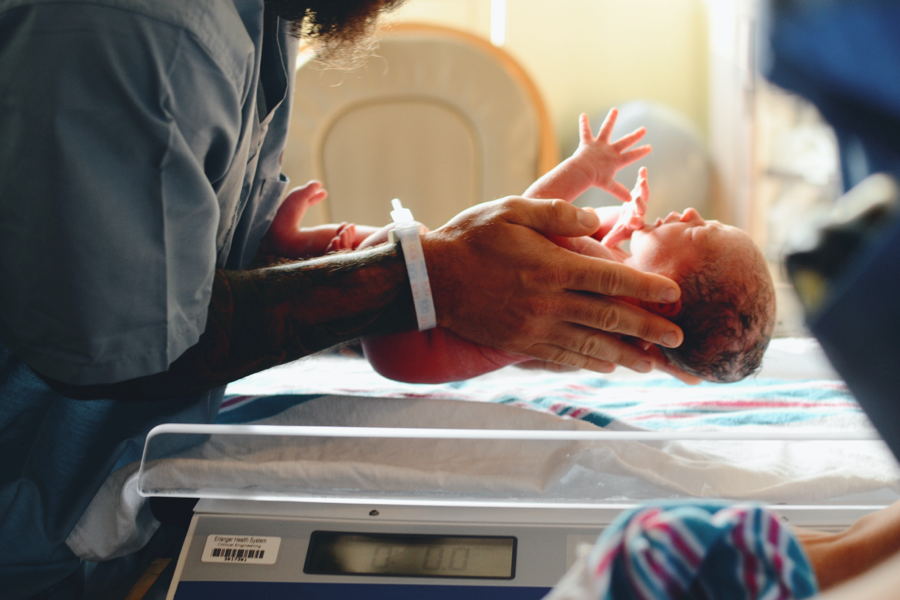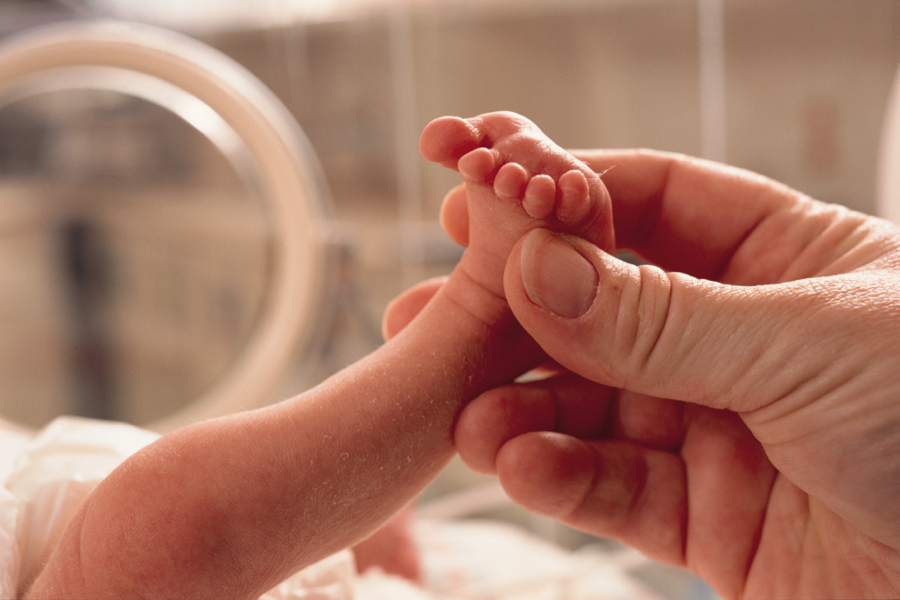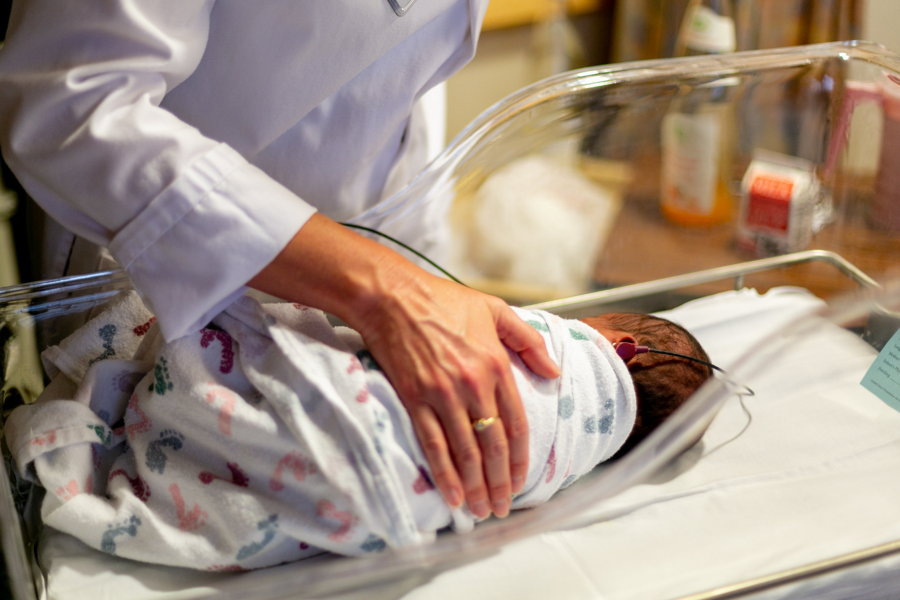
CLINICAL PRACTICE
Cultural Competency in Neonatal Nursing: Strategies and Resources
-
 EveryNurse Staff
EveryNurse Staff
- Last Updated: 05/08/2023

Providing quality neonatal care to patients requires a wide range of skills and competencies, one of which is cultural competency. This is increasingly important in a globalized world where diverse cultures come into contact. Neonatal nurses must be able to understand their patients’ unique cultural backgrounds, perspectives, and health beliefs to deliver care that meets their needs. In this article, we will explore strategies and resources for enhancing cultural competency in neonatal nursing.
Understanding Cultural Competency in Neonatal Nursing
Defining Cultural Competency
Cultural competency refers to the ability of healthcare providers to understand and respect the diverse beliefs, values, behaviors, and needs of patients from various cultures. This involves recognizing that every patient has unique cultural and social experiences that influence their health, illness, and healthcare expectations. It also means being able to adapt one’s nursing practices to specific cultural contexts and preferences.
For example, in some cultures, it is common to avoid eye contact as a sign of respect, while in others, direct eye contact is expected as a sign of attentiveness. Understanding these nuances can help neonatal nurses provide care that is sensitive to the cultural needs of their patients and families.
Additionally, cultural competency is not just about understanding different cultures, but also about recognizing and addressing one’s own biases and assumptions. This self-awareness is critical in providing care that is respectful and equitable for all patients.
The Importance of Cultural Competency in Neonatal Care
The neonatal period is a critical time for both neonates and their families. It is a time when infants are at their most vulnerable, families are typically highly stressed, and healthcare providers must communicate complex information to parents who are struggling to cope with their infant’s needs. Factors such as language barriers, health literacy, and cultural misunderstandings can all interfere with effective communication and care processes. Cultural competence, therefore, is critical in ensuring the best outcomes for both infants and their families.
For example, a neonatal nurse who is culturally competent can help bridge the gap between a family’s cultural beliefs and medical treatments. They can provide education and support that is tailored to the family’s cultural needs, which can help to build trust and improve communication. This can lead to better adherence to treatment plans, improved health outcomes, and increased satisfaction with care.
Challenges in Achieving Cultural Competency
There are challenges in achieving cultural competency in neonatal care. These include language barriers, lack of awareness of cultural differences, stereotypes and biases, time constraints, and shortage of resources. Overcoming these challenges requires dedication, awareness, and a commitment to continual learning and improvement.
One way to address these challenges is through ongoing education and training. Neonatal nurses can participate in cultural competency training programs that provide them with the knowledge and skills needed to provide culturally sensitive care. They can also seek out resources such as interpreters, cultural liaisons, and community organizations that can help them better understand and meet the needs of their patients and families.
Another way to overcome these challenges is through collaboration and communication. Neonatal nurses can work with other healthcare providers, such as social workers, interpreters, and cultural liaisons, to ensure that they are providing the best possible care for their patients and families. They can also seek feedback from their patients and families to identify areas for improvement and to ensure that their care is meeting their cultural and social needs.
Assessing Your Own Cultural Competency
Before implementing strategies to enhance cultural competency, neonatal nurses should assess their own level of cultural competency. This involves self-reflection, awareness of one’s own biases and stereotypes, and evaluation of communication skills. Only by understanding one’s own cultural assumptions and beliefs can a nurse begin to understand and appreciate those of others.
Self-Reflection and Awareness
Self-reflection is an essential first step in assessing one’s cultural competency. This involves reflecting on one’s own cultural background, experiences, and biases. Healthcare providers must become aware of their own biases and beliefs that could affect patient care. This self-awareness and understanding allow nurses to provide more culturally appropriate care.
For example, a nurse who grew up in a predominantly white neighborhood may have limited exposure to other cultures. This lack of exposure may lead to the nurse having biases or stereotypes about certain cultures. However, by reflecting on these biases and actively seeking to learn about other cultures, the nurse can improve their cultural competency and provide better care to patients from diverse backgrounds.
Identifying Biases and Stereotypes
To effectively care for patients from diverse cultures, it is important to recognize and dismantle one’s own biases and stereotypes. Nurses must avoid assumptions about patients based on their race, ethnicity, religion, gender, or any other factor. Nurses should take the time to learn about the various cultures they may encounter in their practice.
For instance, a nurse may assume that a Muslim patient does not want to be touched by a male healthcare provider. However, this assumption may not be accurate for all Muslim patients. By learning about the patient’s specific cultural beliefs and practices, the nurse can provide care that is respectful and appropriate.
Evaluating Your Communication Skills
Effective communication is crucial in developing and maintaining trust between healthcare providers and patients. It is essential to use clear, concise, and culturally sensitive language. Nurses should pay attention to nonverbal cues, make eye contact, and tailor their communication to the patient’s level of comprehension.
For example, a nurse may need to use a medical interpreter to communicate with a patient who speaks a different language. In this case, the nurse should speak clearly and slowly to allow the interpreter to accurately convey the message. Additionally, the nurse should avoid using medical jargon and instead use language that the patient can easily understand.
Supporting training programs can help nurses improve their communication skills with patients. These programs may include role-playing scenarios and cultural sensitivity training. By improving their communication skills, nurses can provide better care to patients from diverse backgrounds.
Developing Cultural Competency in the Workplace
Education and Training Programs
Education and training programs are critical in helping neonatal nurses achieve cultural competency. These programs provide opportunities for healthcare providers to learn about various cultures, enhance communication skills, and address the challenges associated with cross-cultural communication. Education and training programs should be ongoing to keep nurses updated with the latest guidelines and best practices. It is also crucial to ensure that these programs are culturally sensitive and relevant to the nurses’ daily practice.
For example, some education and training programs may focus on the cultural differences in child-rearing practices, such as breastfeeding, circumcision, or co-sleeping. Others may provide insight into the cultural beliefs and practices surrounding death, such as rituals, mourning, and bereavement. These programs can help nurses understand and respect the cultural differences and provide care that aligns with the patients’ and families’ values and beliefs.
Encouraging Open Dialogue and Discussion
Open dialogue and discussion are essential for promoting cultural competency in the workplace. Nurses should have opportunities to share their experiences and learn from one another’s perspectives. An open, supportive, and respectful environment can help nurses develop more culturally sensitive practices.
For instance, nurses can participate in cultural awareness workshops, where they can share their experiences working with patients from different cultures. They can discuss the challenges they faced and the strategies they used to overcome them. This can help nurses gain a better understanding of the cultural differences and develop strategies to provide culturally sensitive care.
Implementing Culturally Sensitive Policies and Procedures
In addition to education and training programs, healthcare facilities should implement policies and procedures that promote cultural sensitivity. This includes providing language translation resources, recognizing the value of diverse beliefs and practices, and ensuring that the facility’s physical environment is welcoming to all cultures.
For example, healthcare facilities can provide translation services to patients and families who speak different languages. They can also incorporate cultural practices into the care plan, such as dietary restrictions, religious practices, and traditional healing practices. This can help patients and families feel more comfortable and respected, which can lead to better health outcomes.
Strategies for Culturally Competent Neonatal Care
Building Trust with Diverse Families
Building trust with diverse families is critical in providing effective neonatal care. Neonatal nurses must establish a relationship of trust with the family early on. They should take the time to listen to families’ concerns, show empathy, and respect cultural differences. Listening and showing empathy will help build trust between the families and the healthcare provider.
Adapting Communication Styles
Effective communication requires adapting to the communication style of each family. This includes cultural influences, educational level, and language use. Healthcare providers should ensure that they communicate in simple language and use appropriate gestures to convey meaning.
Incorporating Cultural Practices and Traditions in Care Plans
Integrating cultural practices and traditions into neonatal care plans can promote cultural competency. Neonatal nurses should work with families to incorporate cultural practices that support their child’s health and development. This could include dietary practices, language preferences, and traditional healing methods.
Conclusion
Cultural competence is a critical element in neonatal care. Developing cultural competence requires ongoing training and self-reflection on the part of the neonatal nurse. Strategies for promoting cultural competence include education, training programs, open dialogue, and the implementation of culturally sensitive policies and procedures.
These strategies enable neonatal nurses to build trust with diverse families, adapt to communication styles, and incorporate cultural practices and traditions into care plans. By improving cultural competence, neonatal nurses can provide more effective and culturally sensitive care to their patients, which will help improve patient outcomes.















